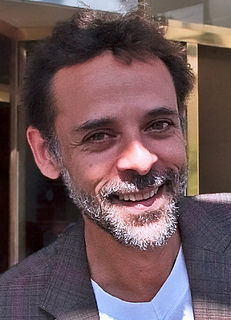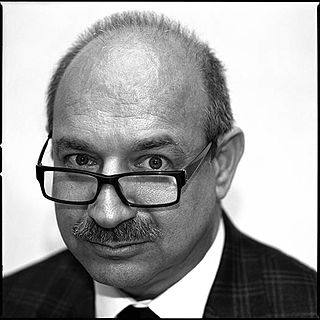A Quote by Oliver Sacks
I think the brain is a dynamic system in which some parts control or suppress other parts. And if perhaps one has damage in one of the controlling or suppressing areas, then you may have the emergence or eruption of something, whether it is a seizure, a criminal trait - - or even a sudden musical passion.
Related Quotes
This is the hallmark of a robust biological system: political parties can perish in a tragic accident and the society will still run, sometimes with little more than a hiccup to the system. It may be that for every strange clinical case in which brain damage leads to a bizarre change in behavior or perception, there are hundreds of cases in which parts of the brain are damaged with no detectable clinical sign.
There are parts that you can do them all your life, and no one knows you're even acting, and there are other parts which somehow - I think they say they 'pop' - people notice that you're in and you become an actor from the movies and people take you in a whole different way. Whether or not I can keep that ball rolling is another matter.
We consciously use only a small portion of our brain, but we're constantly performing complex operations in other areas even though we're unaware of it. Savants gain access to unconscious areas when the brain's bossy left hemisphere is muted. The left is in charge of much of our organized thought and decision-making and tends to suppress the right side, which generally rules creative activities.
The soul consists of two parts, one irrational and the other capable of reason. (Whether these two parts are really distinct in the sense that the parts of the body or of any other divisible whole are distinct, or whether though distinguishable in thought as two they are inseparable in reality, like the convex and concave of a curve, is a question of no importance for the matter in hand.)
Literature, real literature, must not be gulped down like some potion which may be good for the heart or good for the brain—the brain, that stomach of the soul. Literature must be taken and broken to bits, pulled apart, squashed—then its lovely reek will be smelt in the hollow of the palm, it will be munched and rolled upon the tongue with relish; then, and only then, its rare flavor will be appreciated at its true worth and the broken and crushed parts will again come together in your mind and disclose the beauty of a unity to which you have contributed something of your own blood.
I think poetry can be a kind of secular way in which people can be led to approach the difficult parts of their life, where there's been loss, where there's sadness of a deep kind. If poetry can help people to be more at ease in expressing even to themselves a lot of the darkness and pain of ordinary human existence, then it's serving some kind of cultural role, perhaps more than a cultural role, perhaps it is serving something of a spiritual role.



































